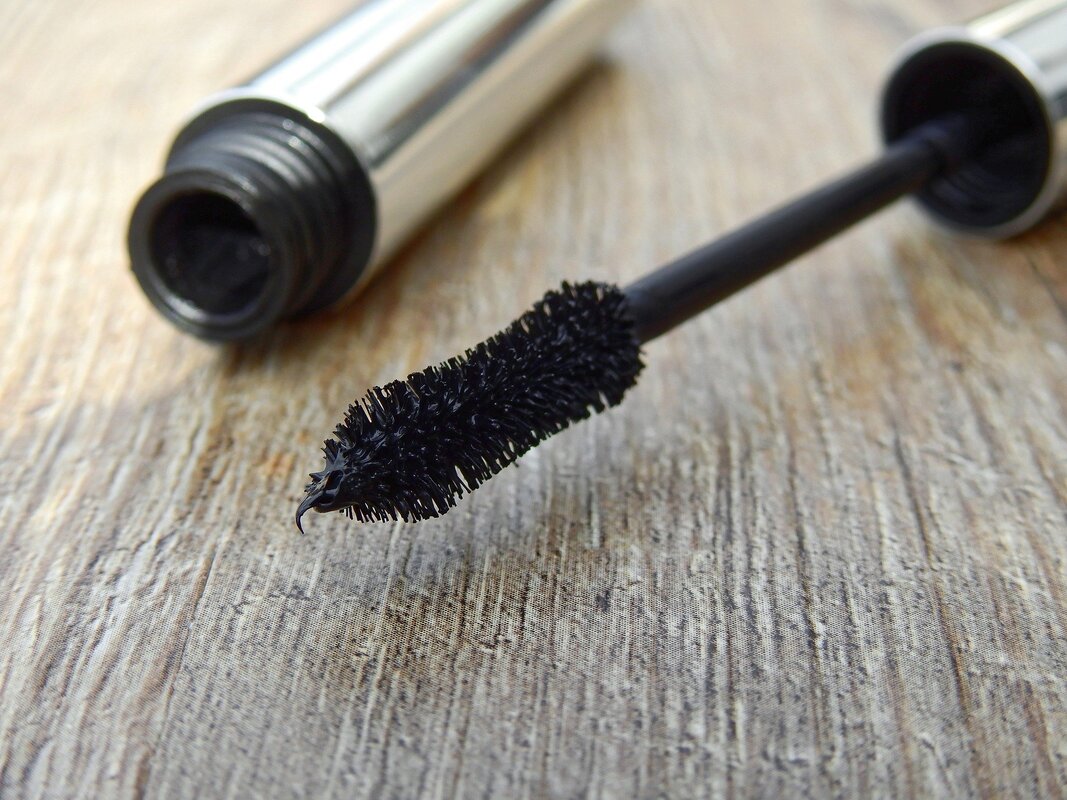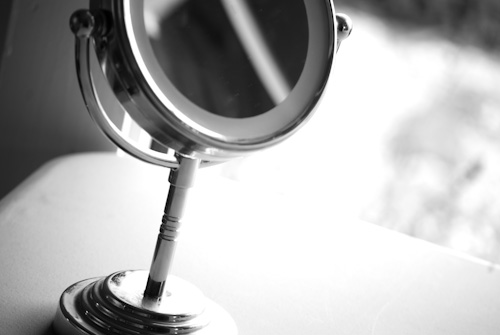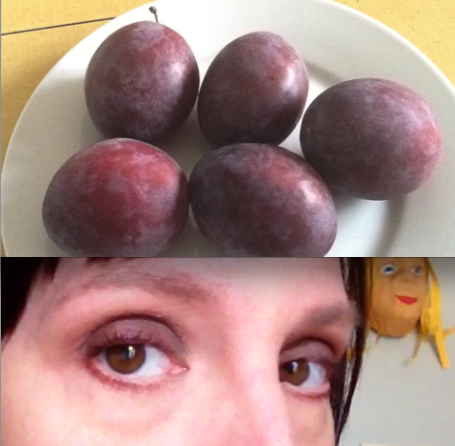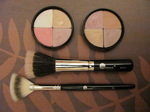|
It seems more and more of my clients and friends are developing sensitivities to eye color cosmetics, usually mascara and/or eyeliner. Have I found a mascara that is safe for all to use? No. Mascara has several problematic ingredients: shellac (maybe listed as polymer on label) in one study on contact dermatitis was found to be the key sensitizing ingredient. Another probable correlation exists with nickel allergy and mascara (and curlers). Nickel won't show up on the ingredient list because it results as an impurity in a raw material used to produce another ingredient. We know the thinner skin on our eyelids allows chemicals to go into the skin at a faster rate making contact dermatitis common around the eyes. This same article states that sweat allows chemicals to penetrate even easier. All mascaras have some kind of pigment, even the "natural" ones. That is how they darken your lashes so if you are sensitive to those you'll have a harder time. Then there is the possibility of reacting to the preservatives. Preservatives are crucial in a formulation like mascara, and even with them you need to pitch yours every three months.
Take homes: 1.) The more you use a product the higher the chance you will develop a sensitivity to it. This makes sense because you don't hear this as much with younger people. Do you really need to wear mascara every day? Definitely don't exercise/steam or sauna with it. Be sure to remove all of it every night. Don't be stubborn and rely on the old "I've always used this and it's always worked for me." Things change and YOU change. 2.) You won't find a mascara to move to just by shopping cleaner brands or reading labels. You'll have an easier time if you are a cosmetic chemist but most of us it will be trial and error--or trial and learn as my Dad says. Especially considering raw materials (the ingredients in the ingredients) can be big unknowns. I have an earlier post about the FDA's role in cosmetics. Use your best sleuthing skills. If you also react to your eyeliner or other product, see if you can find a common ingredient. Some brands have started carrying sample or travel sizes, so take advantage. 3.) Keep me posted on your trials. We can learn from each other and maybe (just maybe because we are all different) shortcut someone's tedious process. Meanwhile, if you can't go natural, curl those lashes to open up your eyes. If you have no nickel allergy use a metal crimper or try one of the heated models, like this one from blinc.
8 Comments
If you or your child has a lighted magnifying mirror BEWARE. It is exponentially easier to go too far with eyebrows and skin. You are viewing yourself at an unnatural range. Trained artists know that you must take breaks from intense focus and step back from your art and view it from a more distant perspective. This is key to remember. I know strong mirrors can be helpful and necessary to see hairs but SOME PEOPLE should not have these tools.If you or someone you love starts overdoing with eyebrows or habitually picking at skin, it is time to consider letting that accessory go and scheduling an appointment with me.
What do I recommend for at home? I like my small round suction cup magnifying mirror attached to my bathroom mirror. It isn’t high magnification; I can not sit and use it, thereby shortening my time in front of it. I even have it in a bathroom that I don’t use to apply makeup. I may do a quick check in it after I am done getting ready, to brush off a hair from a makeup brush or clean up a mascara smudge, but then I get on with my day. You guessed it, I have learned the hard way that I am better off without a high magnification mirror. The Beauty Sort-OutThe Beauty Sort-Out is 90-minute service that is a makeup application and discussion using your cosmetics and brushes from home with products from my kit, some of which I retail. Brand names that I sell include Lavera, Mineral Hygienics, Glominerals and Blinc. Be introduced to makeup, brushes and techniques that complement what you already have while gaining clarity about what is working and what is not. We all know it doesn't matter where the item was purchased or how much you paid, for that matter. The criteria; does it agree with your skin and serve a purpose toward the greater good of your look?
I will also cover best practices for preparing the skin with oils, serums and moisturizers and sunscreens, including the order of layering multiple products. This playful interaction will expand your range and address challenges brought on by various skin conditions, including aging, acne and rosacea. I believe that your skin and beauty rituals need adjusting from time to time, just as it is necessary to change your nutrition and ways of moving and exercising the body. Many women are stuck doing what they have always done and can benefit from some tweaking. Enjoy what department and makeup specialty stores do not offer; a clean and beautiful private room, skin care advice from a mature esthetician, and the eye of an artist who holds a BFA (Bachelor of Fine Arts). Proper technique for washing and caring for makeup brushes is demonstrated on one or more of your brushes, as time permits. Pack your bag and get creative with me! Depends on the line, and I sell a selection from about seven lines. Tell me of your sensitivities, allergies and preferences and I can make suggestions. Let me apply some things and have you leave it on for a “test drive.”
Personally, I haven’t had to be very strict. For now, in my skincare and my makeup I avoid sodium lauryl sulfate, petroleum oil and synthetic fragrances. Here are some key observations I have made while testing loads and loads of cosmetics: Generally long-wearing products have sophisticated synthetic ingredients (fine-tuned in laboratories) that make them that way; able to really stick to the skin and repel water. Mineral powders made of zinc oxide and titanium dioxide are an exception, being naturally water-resistant. This is why they are so popular--fewer ingredients and long-wearing. They are not, however, organic and “all natural” in the strict definition despite the marketing claims. I personally think it is A-OK to use shimmer products on mature skin. The key is to not wear them all over the face at the same time. I am most likely to use them:
Colors that used to pop and give us a healthy glow are now getting neutralized or otherwise altered by the brown (hyperpigmentation) and red (couperose/rosacea) tones that many of us are seeing in our skin. Skin that isn't as uniform in color, firm, or reflective as it once was needs nourishing skin care and new ways to enhance with make-up. Today I will talk about blush make-up solutions.
My two favorite options are outlined below. In either case, take time to blend the second product into the first and build the color in translucent layers. Pause between layers and stop when it looks good. The goal is to suggest a natural flush. This takes surprisingly little product. |
Author
Amy Linville is an artist and esthetician that believes simple, sustainable and non-rushed daily skincare and beauty rituals are the foundation for finding comfort in your skin and looks, no matter your age. Archives
April 2022
Categories
All
|






 RSS Feed
RSS Feed
